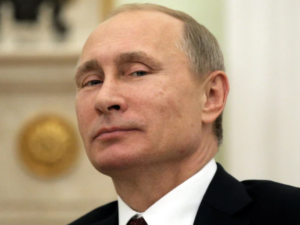#ZelenskyCeasefire #UkraineRussiaWar #WesternDiplomats #PlanB #CeasefireNegotiations #UkraineConflict #NATOStrategy #UkraineWar
In a notable shift, Western diplomats are reportedly urging Ukrainian President Volodymyr Zelensky to consider a “Plan B” involving ceasefire negotiations amid increasing losses on the battlefield. Over the past few weeks, major headlines from U.S. outlets have highlighted a growing acceptance among Ukraine’s Western supporters that Kyiv’s forces are on the losing end of the war and that Russia, led by President Vladimir Putin, remains undeterred in achieving the objectives of its so-called “special military operation.” The alternatives, as echoed by Western diplomats, boil down to either a potentially catastrophic escalation involving NATO and Russia or engaging in ceasefire talks. According to The Wall Street Journal, these diplomats are pressing Zelensky to start considering more pragmatic strategies, especially as support from Western nations shows signs of waning fatigue.
The urgency for a “Plan B” is fueled by the slow, yet persistent gains made by Russian forces on the battlefield. The increasing pressure on Zelensky is underscored by a reported decline in Western enthusiasm for funneling further military aid and resources into the Ukrainian war effort. As noted by WSJ, the message from NATO allies to Zelensky has shifted towards a more realistic assessment of the current situation, urging him to rethink Ukraine’s military ambitions. European diplomats are advocating for a more pragmatic approach, which could facilitate Western governments in justifying continued support to their electorate, who are growing weary of the endless financial and military commitments.
This substantial shift in diplomatic messaging is also evident in recent statements from U.S. officials. John Kirby, spokesperson for the White House National Security Council, indicated earlier this month that “a negotiated end is the most likely outcome,” emphasizing that the timing and conditions would ultimately be decisions for President Zelensky. However, discussions over direct engagement remain contentious with prominent hawks still pushing for the U.S. and UK to authorize Kiev to launch attacks deep into Russian territory using long-range weapons. The Biden administration’s cautious approach in response to these calls reflects concerns over triggering further escalation from Moscow, highlighting the delicate balance the U.S. seeks to maintain.
Adding to the complexity, Bloomberg has confirmed that these conversations among Western diplomats about possible ceasefire negotiations are becoming more vocal. While there are strong advocates for seeking an off-ramp to the conflict, there are significant concerns about the implications of a premature ceasefire, which could potentially grant Russia strategic advantages. Despite the push for pragmatism, Ukraine insists on reclaiming its territory entirely, standing firm against any notion of ceding land to Russia. Nonetheless, as the conflict drags into another winter without significant breakthroughs, the combined pressures of battlefield stalemate and domestic dissent among Western nations may pivot the dialogues increasingly towards diplomatic resolutions.







Comments are closed.